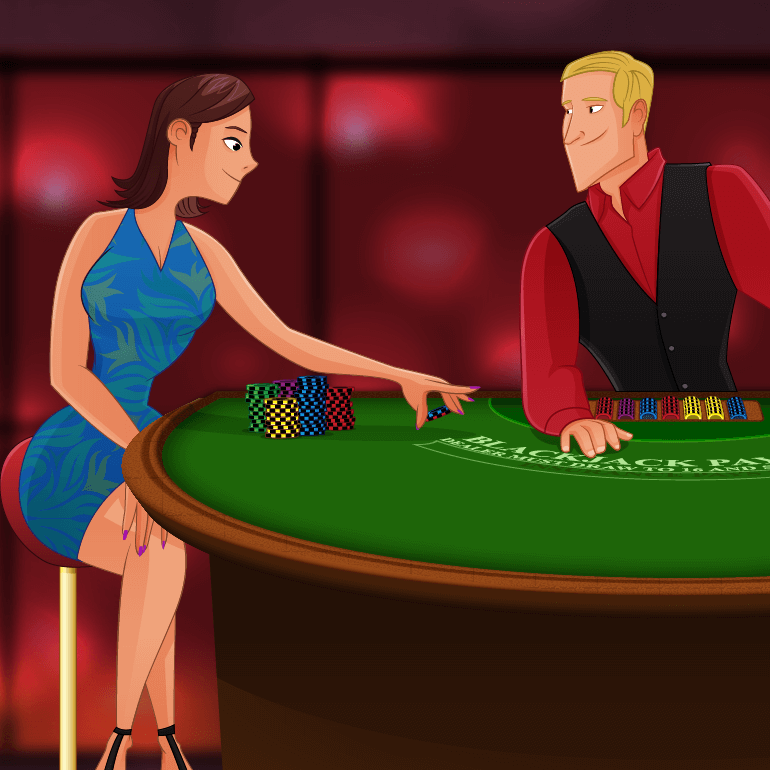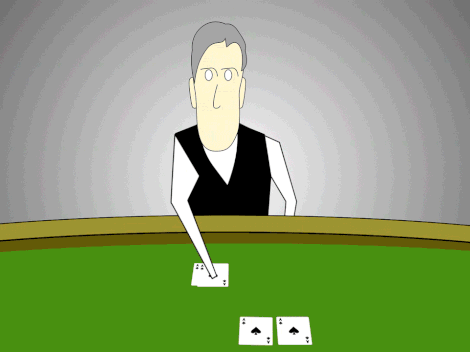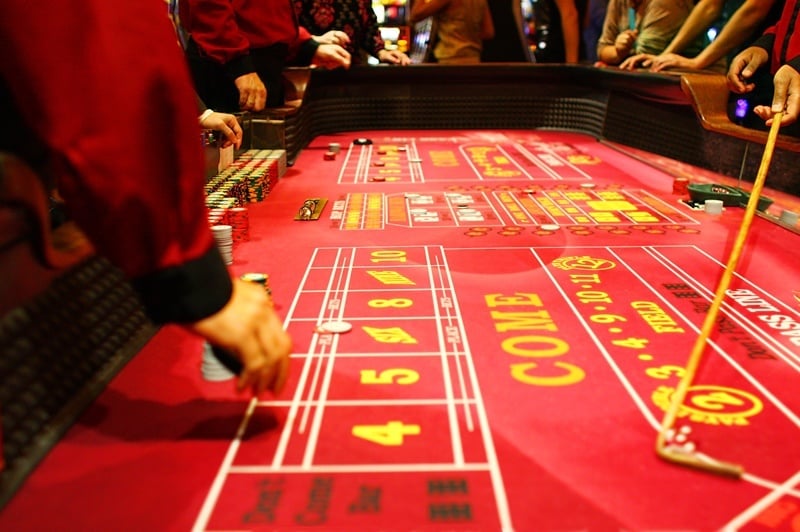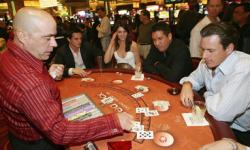Can You Tip Casino Dealers
A Tipping Point
- Should You Tip Casino Dealers
- Can You Tip Dealers At A Casino
- Can You Tip Casino Dealerships
- Can You Tip Casino Dealers Near Me
Can You Tip Casino Dealers Minimum deposit £10. 10x wagering on free spin winnings. Free Spins are valid only on Starburst and expire in 7 days. Excludes deposits made via Skrill, Entropay and Neteller. Instead of going into the prize pool, or to the casino, the fee is then given to the dealers as a tip. The dealer add-on is often included in many no-limit hold’em tournaments – particularly the smaller buy-in tournaments. In this situation, you’re given the option to pay an additional amount of entry fee (often anywhere from $5 to $25. Mayne's top three rules of tipping: 1. Offer what you can afford. If you can't afford a tip that will be expected, don't use the service. If you're unsure about a tipping policy, ask a manager. If the situation calls for it, consider a thank-you card, letter or batch of cookies to show your gratitude instead of a cash gift.
Know how dealers make a living before deciding how much or little to leave
I recently set off a minor controversy when I mentioned to @Pokerati that a Red Rock Casino poker dealer complained that new Heartland Poker champion Rob Perelman (@veerob) didn’t leave a dealer tip at the conclusion of the tournament.
First, I do not know Rob at all and was not making an accusation against him. I merely passed along the information because I knew @Pokerati had been covering the tournament. Second, as with any tournament cash of any size, Rob is free to spend or not spend his money any way he pleases. (He later tweeted that he tipped $2,000 on his $158,755 cash. The confusion being that he left the tip the next day after most of the dealers were gone and not directly after the tournament.)

Still, I believe the practice of tipping is an aspect of poker that merits discussion. Certainly, there is no standard for tipping in cash games or tournaments, and a lot is left to chance when the casino and other players alike rely on winners to pick up the check.
You may not agree with me to tip 10% of winnings of more than $10,000 in a poker tournament, but you can certainly agree that .00025% is extremely low!
Mike Caro makes a number of salient points when it comes to tipping in both cash games and tournaments in his article from 2006 here. How one player tips in poker is probably no different than how the same player tips at a restaurant or when getting a haircut.
Some players think that the part of a poker tournament buy-in withheld from the prize pool should cover everything. I have heard that of the house cut for the HPT main event (a $1000+100 tournament), $50 went to Red Rock Casino and $50 to the Heartland Poker Tour. I find it a little incredulous that a Las Vegas casino would split the house cut 50/50, but it’s possible.
When you think about the house cut, it is much like getting a meal in a restaurant. If you pay $50 for a nice meal it’s not because the food you ate cost $50. That $50 covers food costs, the server, the cook, the utilities and rent and leaves a profit for the restaurant owner. The server gets paid whether you leave a tip or not. The difference is that if you don’t leave a tip, that person is making $2.13 an hour. If you leave a tip of 15% to 20%, that same server can make a living wage.
Some players think that house cut is a huge profit center for the casinos. That house cut does afford some profit for the casinos, but that money has to pay a lot of people. At the WSOP, the house cut has to cover the labor costs for hundreds of dealers, floor people, servers and tournament staff.
At smaller casinos, where a tournament can literally use up every available table and dealer, this house cut is what the casino earns off its tables since there is no rake during a tournament. I manage a 40-person tournament in a four-table poker room. The tournament typically takes three hours. Until the tournament gets down to 30 people or less, every table is full and there is no place to host a cash game. The house cut makes up a percentage of what is lost in cash-game rake. This obviously doesn’t apply in a bigger casino that can afford to have a separate tournament room from its regular poker room.
As a poker dealer, I have been asked about tipping and how poker dealers are paid. Most poker dealers sign up for the Internal Revenue Service tip compliance program through their home casino or in any casino in which they are dealing a tournament. The formal part of tip compliance is: Under the Gaming Industry Tip Compliance Agreement Program (GITCA), a gaming industry employer and the Internal Revenue Service work together to reach a GITCA that establishes minimum tip rates for tipped employees in specified occupational categories, prescribes a threshold level of participation by the employer’s employees, and reduces compliance burdens for the employer and enforcement burdens for the Service.
Essentially, poker dealers (and other casino employees) are taxed a certain amount per hour for every hour they work. The rate of tip compliance is higher in bigger and busier poker rooms, less in smaller and less frequented rooms. What is consistent is if you are working eight straight hours at Aria on a Saturday night, you are taxed a certain amount per hour your rate of pay (i.e. minimum wage). If you are “dead spreading†at Excalibur at 8 AM on a Monday and don’t get a game for the first two hours, you are still taxed at your tip compliance rate.
The upside is that poker dealers in the tip compliance program keep all of their own tips. They are not reported to the IRS. They are not taxed. They are not shared. These tips are what make up the majority of a poker dealer’s wages. For a full-time Las Vegas poker dealer you can expect that your bi-weekly paycheck, after taxes and insurance, won’t buy you more than a bag or two of groceries. Your tips, however, can afford you a car and a home.
I know many a dealer who would rather be pitching cards in a four-table casino in the suburbs than in a high-stakes game on the Strip.
As I have been on the felt as both a tournament casher and a tournament dealer, I have seen both sides of this dance.
In a typical situation where the top 20 players of a tournament are getting paid, the tipping breakdown generally goes like this – 16 through 20 make a very small profit but they are willing to throw a few bucks of their profit to the dealers because they are happy to have survived the bubble. Finishers 15 through 5 are happy they cashed, but upset they didn’t cash big. They generally tip small or not at all because they have the mentality that tipping the dealers is the top finishers’ problem, not theirs. This is not true for all players, but I see it happen more often than not.
The top cashing players usually all tip based on what they think is fair – from 1 percent to 10 percent, but usually in the 3-5 percent range.
Here is where human nature really kicks in. If I buy in to a $120 tournament and win $3,000, I think I generous tip is in order. I would tip $300. However, most players I have run across do not think about the $2,880 profit they just made, but instead, think about the $300 they are about to give away. And that seems like a lot of money.
The same source of the @veerob tip told me that the second-place finisher was a local Red Rock 2-4 limit grinder who tipped $7,000 on his $79,059 cash. A 2-4 limit player is lucky to make enough just to stay ahead of the rake. Generally, that player would look at a $79,000 cash like hitting the bad beat and tip accordingly. Again, this tip is unconfirmed.
Every poker dealer has heard the tipping horror stories. My friend and fellow dealer @scarletlv told me of a player who tipped a half eaten candy bar. I have dealt in a casino where quarters are raked and players would tip 25 cents on a $45 pot. At a major downtown casino last summer, a player profited more than $2,000 in a tourney, but was so angry about the bad beat that knocked him out of the tournament that he slapped two quarters on the counter for the dealers and stormed out of the room. You may not agree with me to tip 10% of winnings of more than $10,000 in a poker tournament, but you can certainly agree that .00025% is extremely low!
I have dealt a number of poker tournaments in various casinos and have many friends who are dealers in Las Vegas and in other places. No matter the size of the tournament, the number of entrants or the location, the same number comes up time and time again with poker dealers — $10 per down. That is what most tournament downs (30 minute dealing sessions) average. That means that most poker dealers make $20 per hour for dealing a poker tournament (before taxes). That may seem like a lot of money, and certainly it is above the poverty line, but look at it this way:
| SALARY $100,000/yr. $75,000/yr. $50,000/yr. $40,000/yr. | AVERAGE PER HOUR $48 $36 $24 $19 |
And that’s for full-time dealers. With the supply of dealers being vastly higher than the current demand, most dealers are not full-time employees. They are extra board personnel and temp hires who take jobs where they can get them.
Locals and low-limit players are typically great tippers. They make sure they push you $1 or more after every single hand they win. Generally, bigger game players and tourists are terrible tippers. I know many a dealer who would rather be pitching cards in a four-table casino in the suburbs than in a high-stakes game on the Strip.
In the end, poker dealers are no different than servers, bartenders, valets and a whole litany of service industry jobs in Las Vegas. We do what we do because we like it and it affords us a living.
But the next time you hit that beautiful river card and take in a huge pot, take a beat and think about the hard-working person in the box making the game go smoothly.

Chad Harberts is a full-time poker dealer/supervisor at the Club Fortune Casino in Henderson, NV, and co-founder of WastedAcesPoker.com. You can follow him on Twitter under @chadharberts.
“Right now, when it comes to tipping, it is a gray area with a capital G,” said World Series of Poker Media Director Nolan Dalla.
By definition, a tip is an optional payment given in addition to a required payment, usually to express appreciation for excellent service. It is also called gratuity, or, in poker terms, it is referred to as a toke. With the rise in popularity of big buy-in multitable tournaments, the landscape of the game has changed. Instead of a rotation of five or six dealers, events can require hundreds of them who rely on tips for most of their income.
In the past decade or so, it has become common practice that a certain percentage of the prize pool be withheld for dealers on top of the house cut. This has become a controversial topic among players and dealers alike. Tips have traditionally been considered an “optional payment,” so now that they are being automatically taken out of the prize pool, it has led to some confusion, disgruntled players, and stiffed dealers.
“In the old days, they didn’t take anything out for the dealers, but all of the players would usually tip 1 percent to 2 percent. I really don’t think they should take anything out,” said 1996 WSOP champion Huck Seed. “The house should get paid, and then people should tip what they want to tip. It shouldn’t be a mandatory tip.”
Seed says that he is an average tipper who always does so when he cashes in a tournament. The amount he gives depends on his experience and the amount of money he wins.
“We have had final tables where no one tipped,” said Dalla. “This is somewhat demoralizing. You have got to have some guarantees. You can’t have dealers essentially gambling on whether they will be compensated.”
Standard Practice?
Should You Tip Casino Dealers
Most players say that they tip anywhere from 1 percent to 4 percent of what they win, and usually more toward the bottom of this range if money has already been allocated for dealer tips. Information on what percentage of the prize pool is withheld for dealer tips can usually be found at the bottom of any tournament structure sheet in small print. Nearly all big buy-in events, including the recent Wynn Classic and most WSOPCircuit events, take out 3 percent for tournament staff.
At the WSOP, the percentage taken out varies with the buy-in amount of the event. Lower buy-ins, including the $500 buy-in events, have the most taken out at 3 percent. The $1,000-$2,000 buy-in events have 2.7 percent taken out, while the $2,500-$5,000 buy-in events have 2.4 percent taken out. All $10,000 buy-in events, including the main event, withhold 1.8 percent for tournament staff, and the $50,000 buy-in H.O.R.S.E. tournament withholds 1.2 percent.
Among the many players who agree with withholding money for dealers is 2006 WSOP champion Jamie Gold.
“I think that it is a good thing that they take out a certain percentage, because they (the dealers) deserve to be taken care of. I definitely think they should (take out the money), because there are some people who don’t tip,” said Gold.
Gold is known as one of the most generous tippers in cash games, but he was railed for his main-event tip snub. He said that what people might not know is that he personally tipped the final table dealers. Gold gave a dealer money to evenly distribute between the five to 10 dealers who sat in the box while he won the biggest first-place prize in live tournament history.
“Back in the old days, it was always expected to toke,” said Dalla. “Now we are in a new age where some people say, ‘Well, they are already withholding this amount of money for the dealers, why should I be expected to tip more?’ Those are both legitimate, valid points of view. Ultimately, the industry standard should be a compromise between the two.”
A compromise is exactly what dealers are looking for. Winner of the WSOP dealer’s event Erick Narciso agrees that dealers are just looking for a gratuity that is fair. When he won nearly $105,000 for the event, Narciso tipped four percent on top of the 3 percent that was already taken out.
“There is no reason to tip anything extravagant, but a tip is necessary, for sure,” said Narciso. “There are some people who don’t tip, and the dealers have to get paid, so I don’t mind up to three percent. I don’t think it should go any higher, though.”
Director of Poker Operations for Harrah’s Entertainment Jack Effel compares dealers to other workers who rely on tips to make a living.
“It’s like any other service industry. Yes, you can tip your waiter the regular 15 percent or pay the automatically added 18 percent gratuity for big parties, but if you get excellent service, you may want to leave something extra,” Effel said. “I think our dealers are worth every penny.”
Taking a percentage out of the tournament prize pool has become standard in the

Cantu responded to the issue in depth and said that he assumed the dealers and staff were already taken care of from a part of the prize pool.
Read Part II of this article and more from Cantu.
Can You Tip Dealers At A Casino

Can You Tip Casino Dealerships

[Correction: The story has been updated to remove the inaccurate statement that San Jose, California, prohibits tournaments to withhold a percentage of the prize pool for dealer tips. The city does allow that practice, but it must be approved ahead of time. Coordinators for Bay 101 simply did not submit an application in time to withhold tips for the Shooting Star event.]